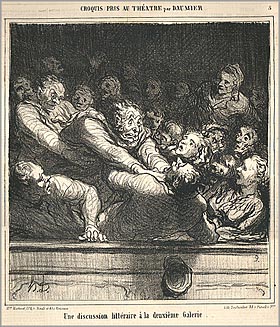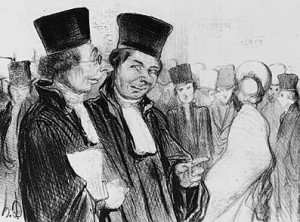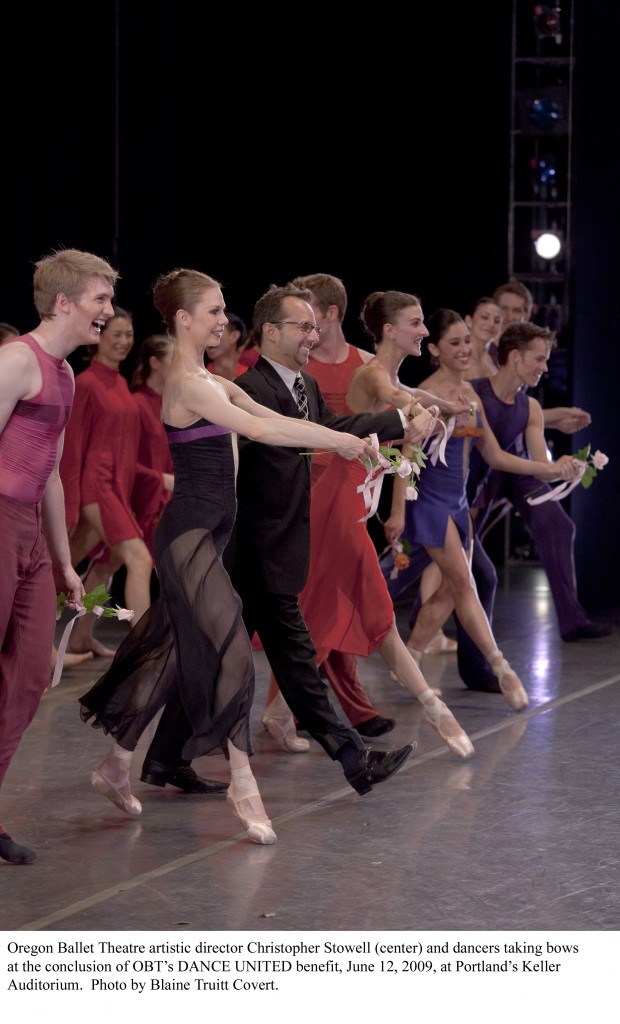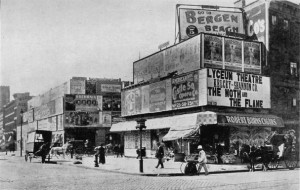
Joe Btfsplk, honorary grand marshal of Portland’s High Fashion Parade.
I was shocked — shocked! — this morning when I sat down to make my daily blog rounds and discovered Mighty Toy Cannon’s report at Culture Shock on Portland’s rankings in Travel + Leisure magazine’s latest assessment of America’s Favorite Cities.
Sitting in my plaid pajama bottoms and red T-shirt (not the best choice, granted, in a household with a 16-pound white lap cat) I tugged with frustration at my hair — which, all right, was already a trifle on the unkempt side, and three weeks overdue for a trim.
The nerve! There it was, as Mr. Cannon so indignantly pointed out: Portland, 17th out of 30 cities for “Attractive People.” As the magazine so delicately put it, Portlanders “… may not conform to most visitors’ standards of ‘normal’ beauty.”
Mrs. Scatter was lucky she’d departed for her spacious corner office overlooking the sartorial splendors of Northeast Martin Luther King Jr. Boulevard, or she’d have got an earful.
The larger of the young lunks known collectively as the Large Smelly Boys had taken his carefully curated rumpled clothing and his head of organic free-range pasturage off to high school. (His last haircut was in April or May; we believe he’s planning on attending Halloween functions as Cousin Itt.) The smaller lunk, also a few weeks tardy from the barber chair, is taking on a mildly stylish Prince Valiant look. He’s the fashion pate of the family: All of his T-shirts, the only kind of shirt he wears, must be single-colored and devoid of words or company logos.
 Portland didn’t do as badly as Cleveland, which rated this jab: “(T)here’s no getting around the fact that its residents are uniformly hideous to look upon.” Ouch! Except for a night spent sleeping on the grassy knoll of a freeway cloverleaf around 1970, I don’t know much about Cleveland. I do know Drew Carey and the Rock and Roll Hall of Fame come from there, and I know Mr. Carey usually wears a nice suit and tie. (He still looks like Drew Carey, but he makes himself presentable, and what more should an upscale magazine ask?)
Portland didn’t do as badly as Cleveland, which rated this jab: “(T)here’s no getting around the fact that its residents are uniformly hideous to look upon.” Ouch! Except for a night spent sleeping on the grassy knoll of a freeway cloverleaf around 1970, I don’t know much about Cleveland. I do know Drew Carey and the Rock and Roll Hall of Fame come from there, and I know Mr. Carey usually wears a nice suit and tie. (He still looks like Drew Carey, but he makes himself presentable, and what more should an upscale magazine ask?)
What do Travel + Leisure’s travelers and leisurites want, anyway? It’s not as if Portlanders were babes in the backwoods when it comes to fashion. Just last night Mrs. Scatter and I were driving through our Highly Cultured Pearl District when we spotted an Eddie Bauer outlet. “I thought they went Chapter 11,” I said. Yet, there they were, scant blocks from REI, “the world’s premiere outdoor gear store.” L.L. Bean catalogs arrive at the Scatter house regularly, and I eagerly flip through them to find out which plaids are in fashion this season. You won’t catch me visiting North Portland’s Paul Bunyan statue in last year’s lumberjack shirt.
I own a tuxedo, and I try to make sure to wear it once a year. It blends nicely, I think, with the black turtlenecks and berets at our more cutting-edge neo-Marxist coffee shops. Plus, how many cities can match Portland for the style and lavishness of our tattoo designs? “I like your arm,” I found myself saying the other morning to the newish barista at our neighborhood coffee joint.
She looked at me a little funny, but I assume that’s because she’s new to town.
 It’s not often that a person starts a full-fledged organization with a casual flick of a typing finger, but I appear to have done just that in an August 27 post in which I
It’s not often that a person starts a full-fledged organization with a casual flick of a typing finger, but I appear to have done just that in an August 27 post in which I  Some didacts will argue that it should be “Tough-guy,” on the basis that a hyphenated word is by definition a single word and a single word can have only a single capitalization. To them I say: “Tough-guy” looks dumb. Start your own club.
Some didacts will argue that it should be “Tough-guy,” on the basis that a hyphenated word is by definition a single word and a single word can have only a single capitalization. To them I say: “Tough-guy” looks dumb. Start your own club.

 The intrepid Mighty Toy Cannon has the story at Culture Shock;
The intrepid Mighty Toy Cannon has the story at Culture Shock; 
 Niel DePonte has another idea, and you can read about it on this morning’s Oregonian editorial page, under the headline
Niel DePonte has another idea, and you can read about it on this morning’s Oregonian editorial page, under the headline 
 A quick followup on our
A quick followup on our  Well, damn those architects’ pointy little heads. What right do they have to protest the demolition of a historically important building when a billionaire’s profits are on the line?
Well, damn those architects’ pointy little heads. What right do they have to protest the demolition of a historically important building when a billionaire’s profits are on the line? I come home from a few days in the rainylands to the north to discover that it’s been pouring in Portland — not just rain, but bad news.
I come home from a few days in the rainylands to the north to discover that it’s been pouring in Portland — not just rain, but bad news. Here at Art Scatter we just love a heavenly chorus. Harmony’s our thing, and we’re fond of kittens, too.
Here at Art Scatter we just love a heavenly chorus. Harmony’s our thing, and we’re fond of kittens, too.